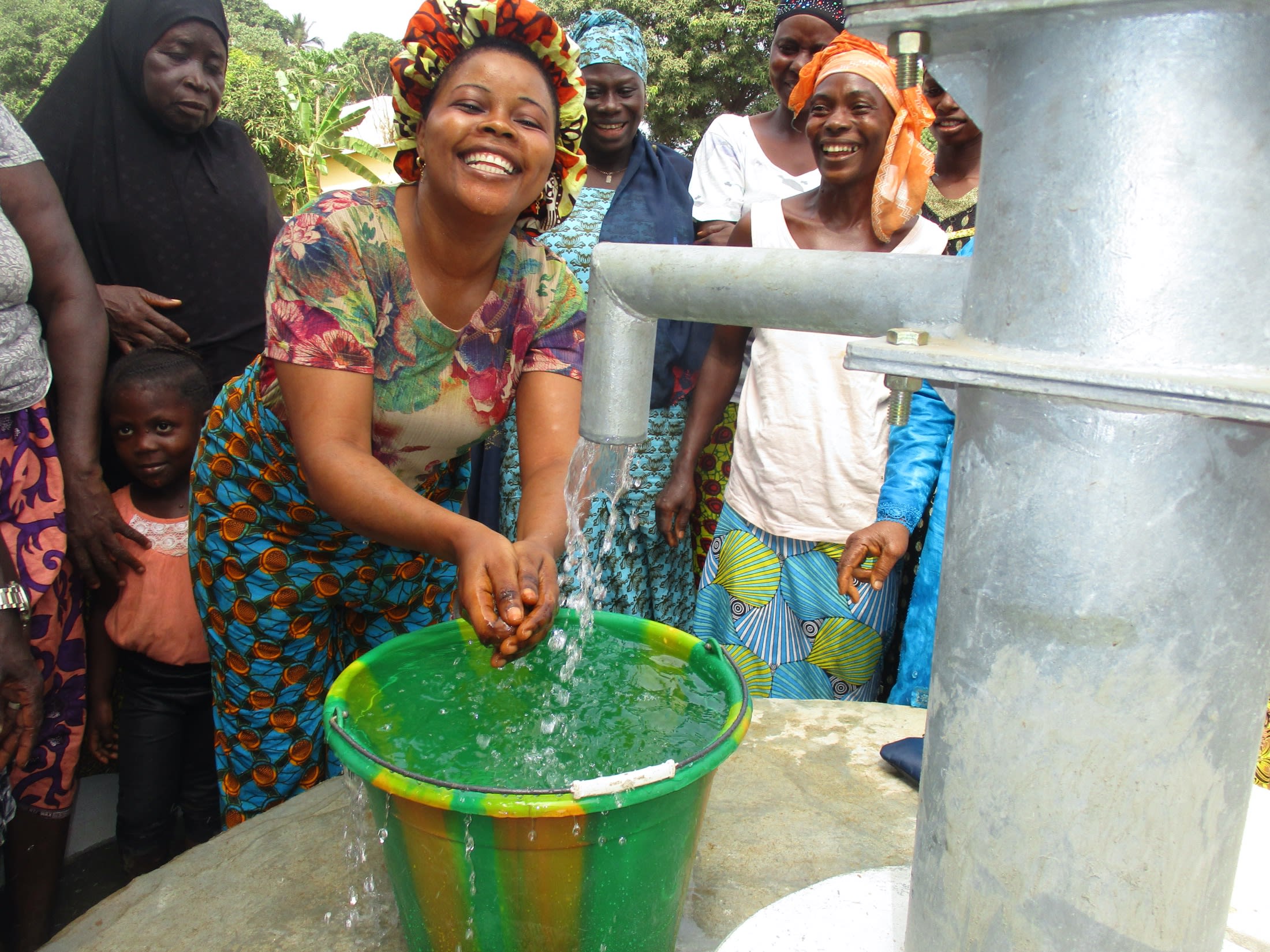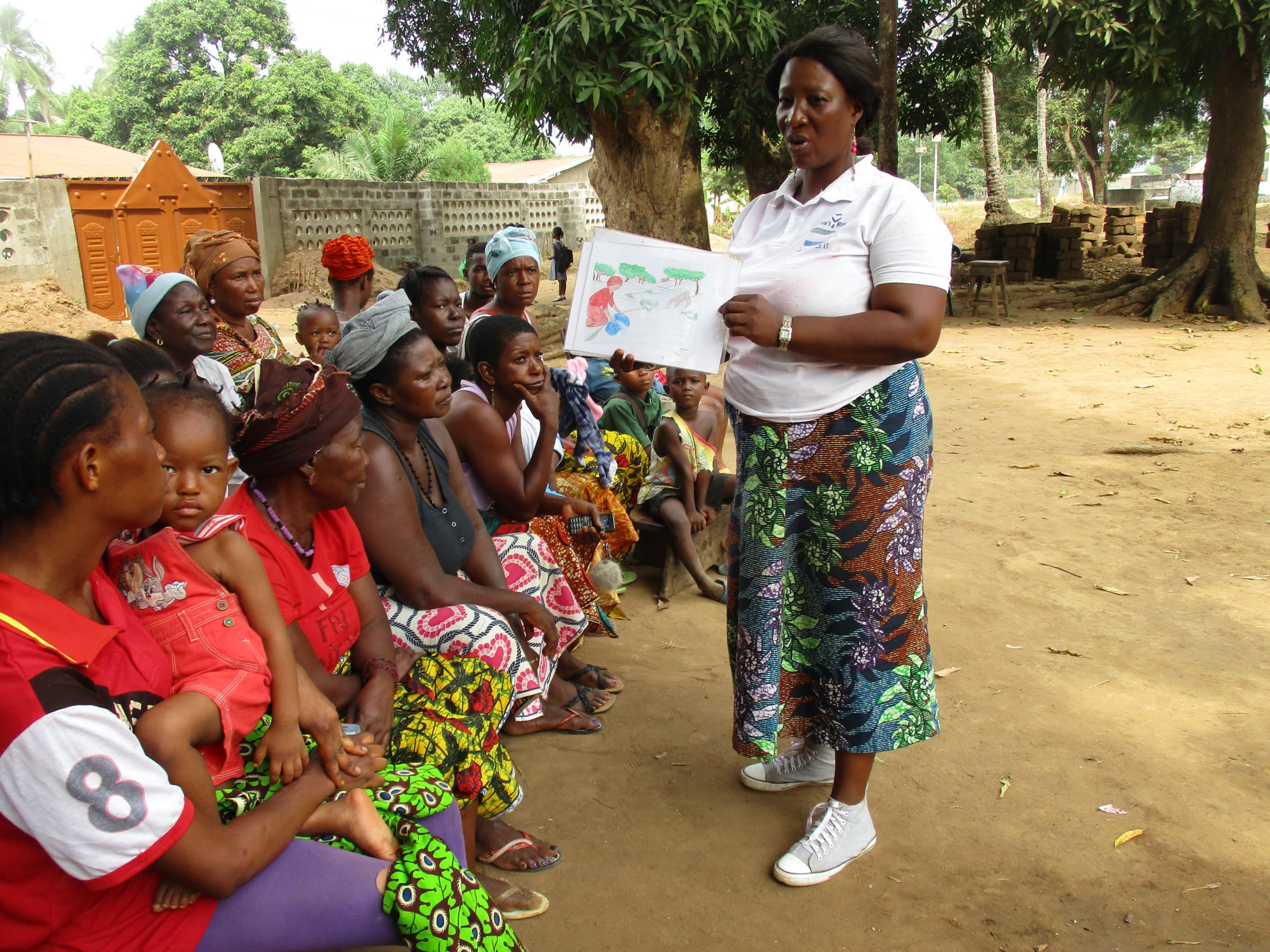There are more than 500 people a day who depend on the well at Mahera Health Clinic. The well needs to be fully functional and providing water year-round to meet the needs of people here. Unfortunately, this is not the case.
During the dry season, this well does not produce nearly enough water. People wait in long lines. Sometimes, fights break out and many community members turn to alternative and often unsafe water sources to meet their daily needs.
"I am a petty trader with young children, and my daily use of water is so high that without this water well 100 feet away from my house, I do not know what to do," said Kadie Baba Bangura.
"The hardest time for our community is during the dry season from January to March. I am always worried about how far my children have to travel to fetch water."
The effects of climate change are being felt in all areas of the country. The first to feel the effect are the people who rely on hand-dug wells. Throughout the chiefdom, there are reported cases of water wells going dry during at least one segment of the year, and sometimes more often. This year is worse than last year and it continues to worsen with time.
This community is the home of the late paramount chief, Komkanda, and is comprised of people from all parts of the country who bring their unique customs and practices to Mahera. The second oldest school in the entire chiefdom belongs to this community, which has produced some of the brightest and most influential people in the chiefdom. It is a community that relies on fishing and gardening for their livelihood and has transformed from a quiet area to one full of noise from the rapidly growing community and bustle of development. Most of the homes are being rehabilitated from mud blocks to cement blocks with cement plastering. In such a large community as Mahera, the changes are gradual yet noticeable.
What We Can Do:
Well Rehabilitation
The well marked for this overhaul is dry for a few months every year and needs major work to supply adequate, clean water to the community year-round. The conversion from hand-dug well to borehole will not only eliminate the cycle of seasonal drying, but it will also ensure that the water provided will be bacteria-free.
The pump will be removed, and a hand auger will be lowered inside and powered by a drill team. This hand auger will allow the team to drill several meters deeper to hit a sufficient water column that will ensure the well supplies water throughout all seasons.
As the team drills, casing will be installed, transforming the bottom of this hand-dug well into a borehole. PVC piping will connect this lower system directly to the pump, a construction that we know will also improve the quality of water.
Once this plan is implemented, everyone within the community will have access to safe drinking water in both quality and quantity, even through the dry months.
"I will be the happiest person in this community when this water well is converted. I will have water at any time of the day and not worry about going far from my house," said 13-year-old girl Isatu.
Hygiene and Sanitation Training
There will be hygiene and sanitation training sessions offered for 3 consecutive days.
"The hygiene and sanitation in this community have been steadily improving even though we have a long way to go," said Mammy Kamara.
After our visit, the hygiene and sanitation trainer decided it would be best to teach community members how to build a tippy tap (a hands-free handwashing station built with a jerrycan, string, and sticks). They will use these tippy taps for handwashing demonstrations, and will also teach about other tools like dishracks and the importance of properly penning in animals to keep them away from people's food and water.
These trainings will also strengthen the water user committee that manages and maintains this well. They enforce proper behavior and report to us whenever they need our help solving a serious problem, like a pump breakdown.

 Borehole Well and Hand Pump
Borehole Well and Hand Pump




































